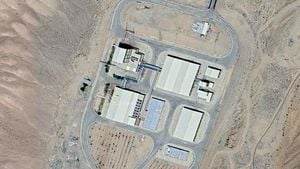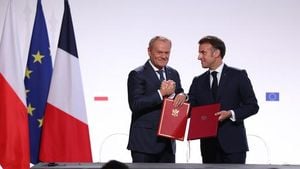The discussion surrounding the H-1B visa program has resurfaced dramatically thanks to Elon Musk’s recent assertions about America's purported shortage of highly skilled engineers. The billionaire, known for his position as CEO of Tesla and SpaceX, took to social media platform X, formerly known as Twitter, to advocate for immigration as the solution to this perceived crisis. He compared hiring foreign tech talent to recruiting professional athletes, asserting, "America will lose if you force the best talent in the world to play for the other side." This declaration reignited a contentious debate among lawmakers and business leaders, highlighting the deepening divide over immigration policy and the future of the H-1B visa program.
According to CBS News, Musk's comments reflect a broader sentiment among some tech executives who believe foreign talent is necessary for maintaining America's competitive edge. These executives argue for the need to bring specialized skills to the U.S. workforce. But not everyone agrees. Critics, including economists and labor advocates, argue the H-1B visa program reduces wages and displaces American workers, leading to growing discontent among U.S. job seekers.
One of the key contentions against Musk's perspective is rooted deeply in labor market data. The National Center for Education Statistics has reported record highs of graduates entering fields such as computer science and engineering over the last few years. Yet, the Department of Labor's projections indicate only modest employment growth—7% by 2033—in tech-related sectors. What's more, the data reveals stagnation or even decline in wages for many positions within these fields. From 2019 to 2023, median salaries for computer and math-related jobs have increased by only 0.27% when adjusted for inflation, with engineering and architecture positions seeing salaries drop by 3.53% during the same years. If there were truly a labor shortage, one would expect to see higher wages to attract new talent, raising many eyebrows around Musk's claims.
Looking at H-1B visa hiring practices, it becomes clear large IT companies significantly benefit from the program. Data from 2024 indicates Amazon led the pack for the highest number of H-1B visas granted, with prominent tech giants like Tesla, Google, Microsoft, and Meta not far behind. Software development roles emerge as the most common professions filed under these visas. Yet, critics highlight issues with these designations, claiming even basic tasks such as product testing do not require specialized skills. Political science professor Ronil Hira pointed out how consulting firms leverage the H-1B program to supply cheaper labor to larger tech companies, thereby flooding the market with foreign workers who are often willing to work for less.
During much of this debate, the policies proposed during the Trump administration create additional room for uncertainty. Previously, Trump attempted to tighten visa restrictions, but his recent remarks to The New York Post suggest he recognizes the importance of the H-1B program for attracting global talent. Musk, often seen as one of Trump’s closest advisors, echoed sentiments to support increased immigration to bolster the workforce. The impending question remains whether the administration will continue loosening restrictions or reinforce limits on the program.
Vermont Senator Bernie Sanders stepped forward, vehemently opposing Musk's views on the H-1B visa system. On X, Sanders argued, "Elon Musk is wrong. The main function of the H-1B visa program is not to hire 'the best and the brightest,' but rather to replace good-paying American jobs with low-wage indentured servants from abroad." He highlighted the contradictions inherent to Musk's arguments—demanding specialized talent but simultaneously approving layoffs of 7,500 American workers at Tesla, many of whom were engineers and software developers. These layoffs occurred amid approvals for thousands of H-1B visas for foreign workers.
Sanders pointedly questioned the logic of Tesla hiring foreign guest workers for positions like associate accountants at $58,000 or associate engineers starting at $70,000, arguing such roles aren’t necessarily indicative of high specialization. "Those don’t sound like highly specialized jobs for the top 0.1 percent as Musk claimed this week," Sanders asserted, emphasizing the importance of investing in America’s workforce rather than importing cheaper labor.
Pointing at the bigger picture, Sanders concluded, "Bottom line. It should never be cheaper for a corporation to hire a guest worker from overseas than an American worker. We need an economy of inclusion, not one solely benefiting the wealthy. Major reforms of the H-1B program are fundamental to achieving this goal." The schism within Trump’s coalition reflects broader societal tensions around immigration and the rights of American workers, cultivating scenarios where even figures like Musk must navigate the political currents surrounding labor market trends versus the need for talent.
Despite the varied views on the H-1B program, the discourse surrounding it highlights significant challenges American workers face. The conversation sheds light on the friction between tech leaders like Musk and government officials like Sanders, both of whom want to attract talent and build the country’s economy but differ on who they believe should fill these roles. The future of the H-1B visa program hangs precariously as political leaders deliberate on the appropriate mix of local versus foreign talent needed to sustain the U.S. economy.



